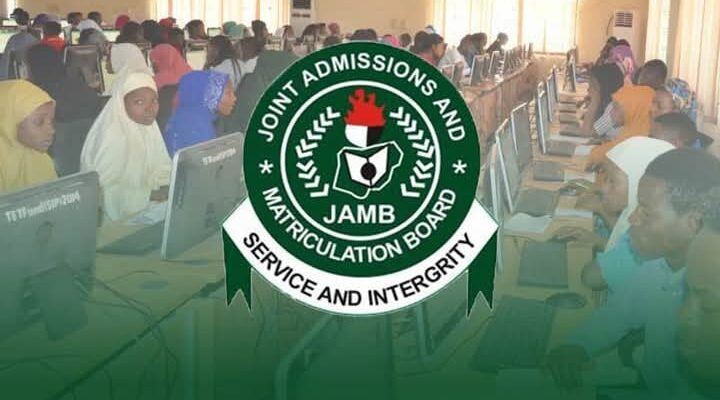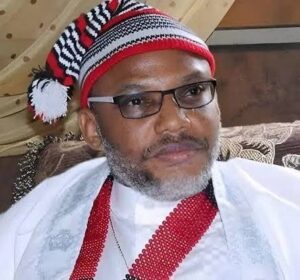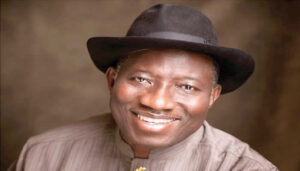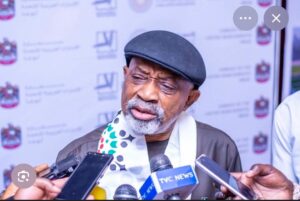
Outrage over massive failure in 2025 UTME results
Stakeholders have described the poor performance of candidates in the 2025 Unified Tertiary Matriculation Examination (UTME) as unacceptable and a sign that all is not well with the nation’s education system.
The analysis of the UTME result released on Monday sent shockwaves around the country with stakeholders and parents asking what went wrong.
According to statistics, 1.5 million of the 1.9 million candidates who sat for the examination conducted by the Joint Admissions and Matriculation Board (JAMB) scored below 200.
The development has ignited national concern and outrage in relation to the quality of education and students’ preparedness for the examination. In view of the lacklustre performance, stakeholders intensified calls for reforms, increased funding and a comprehensive overhaul of the system to meet global standards and effectively prepare Nigerian youth for the future.
In its reaction, the Congress of University Academics (CONUA) described the poor results as a wake-up call on the state of Nigeria’s education system.
The President of CONUA, Dr. Niyi Sunmonu said the performance index reveals a deep-rooted crisis in our educational system, noting that the limited number of high performers and the overwhelming concentration of candidates in the lower score brackets indicate widespread issues in a number of deliverables such as curriculum delivery, learning environment, teacher quality, equitable access to quality education and mastery of CBT procedures by students.
“The data presents to all of us a sobering reflection of the state of our nation’s basic and secondary education system.”
Sunmonu said some of the dire implications are that the universities would face pressure to maintain standards amid limited qualifying candidates, students from underserved regions with fewer educational resources or support systems, are disproportionately disadvantaged and the nation risks further weakening of its human capital base.
CONUA suggested a review of the current curriculum to ensure it aligns with practical, 21st-century needs, invest in teacher training, monitoring and accountability, bridge educational inequality by improving school infrastructure and access to learning resources nationwide.
It urged the government and the stakeholders to support remedial education programmes, such as pre-degrees, JUPEB and others at the tertiary level to cater for underprepared but promising students.
President, Association of Formidable Educational Development (AFED), Emmanuel Oji, also described the performance as abysmal and linked it to the symptoms affecting the education system.
He added: “These results kill the morale of those of us who believe that working hard for a better education outcome is not doing the right thing. It demoralises to say the least.”
He commended the Minister of Education, Dr. Tunji Alausa for taking some practical steps that appear would yield results to address some of the rots in the system.
“When anyone wants to solve a problem, the best approach would be to bring in stakeholders, like he did today, first to take the appraisal of the situation, make a clear problem statement, draw clear objective analysis and create a rational holistic approach,” he argued.
Reacting, former governor of Anambra State and Labour Party (LP) presidential candidate in the 2023 general election, Mr. Peter Obi, expressed deep concern and described the situation as a reflection of Nigeria’s deteriorating education system.
In a statement released via his verified social media handle, Mr. Obi attributed the poor performance to long-standing neglect and underinvestment in the education sector, stressing that education must be repositioned as a cornerstone of national development.
“The latest JAMB results once again highlight the consequences of decades of underinvestment in education, a sector that should be central to our national development strategy.”
He also drew comparisons between Nigeria and other countries with significantly stronger educational outcomes. He noted that Nigeria’s total university enrollment is currently about two million students. In stark contrast, Bangladesh’s National University, a single university, has an enrollment figure of over 3.4 million students, despite the country having only about 75 percent of Nigeria’s population.
“Bangladesh, which once lagged behind Nigeria in virtually every measurable development index, now surpasses us in all key areas of development and in the Human Development Index (HDI),” he remarked.
Citing another example, Obi referenced Turkey, which has a population of about 87.7 million but boasts more than seven million university students, over three times Nigeria’s entire university enrollment.
He reiterated his long-standing position that education is not merely a social service but a strategic national investment.
“Education is the most critical driver of national development and the most powerful tool for lifting people out of poverty. We must now invest aggressively in education at all levels if we are serious about building a prosperous, secure, and equitable Nigeria,” Obi asserted.
On the issue, Mr. Ike Onyechere, founder, Exam Ethics Marshall International (EEMI), said the outcome was not surprising, noting that the massive failure had exposed the deep-rooted problems in the nation’s education system.
“JAMB has made commendable efforts to ensure the integrity of the examination process by reducing opportunities for malpractice. I don’t think the JAMB statistical analysis should surprise anybody.”
He emphasised that universities were increasingly alarmed by the academic quality of incoming students, noting that many of them lack basic foundational knowledge necessary for tertiary education.
Onyechere attributed the trend to systemic issues, including inadequate preparation, the inclusion of under-qualified candidates and a widespread cultural dependence on exam fraud.
“There’s moral infrastructure decadence in the system. It’s not just about the students. It involves stakeholders, including schools, parents and the government.
“Many students rely on fraudulent means to pass, and now that JAMB has blocked those avenues, their lack of preparedness is glaring,” he added.
He also noted that many candidates were not academically ready, as some were still in SS2 or underage, having not completed the syllabus.
He proposed a reform in the registration process, suggesting that only candidates with five credits in WAEC or NECO be allowed to sit in future for the UTME.
According to him, this will significantly reduce the number of applicants from nearly two million to about one million and ensure a more qualified candidate pool.
He also dismissed claims that the Computer-Based Test (CBT) format could be a barrier to performance. “The CBT is easier in many ways. It’s mostly objective and technology is now part of everyday life, even market women are technologically inclined. We can’t blame CBT for the poor results.”
He urged students to focus on talent discovery and career alignment rather than chasing certificates.
“Exams are not rocket science. It’s about working hard and understanding your strengths. Education should be a journey of self-discovery, not just certification,” he said.
He applauded the government’s efforts to prioritise trade and vocational subjects in the curriculum, underscoring the importance of practical skills in today’s world.
He called on education stakeholders to reflect on the deeper issues in the examination failure and implement reforms to save the future of Nigeria’s academic system.
Also reacting, a parent, Mr. Oluwaseun Oluwajuwon, attributed the low performance to lack of reading culture among the candidates.
“Students’ participation in academic matters is very low, with many preferring social media and other distractions over reading and learning.
“We, parents, need to really pay attention to our kids. We need to make sure they follow moral standards and ensure they study hard,” Oluwajuwon, a cyber security expert, said.
Another parent, Mrs. Saidat Oduwole, a pharmacist, said the quality of education contributed to the low performance of candidates.
Oduwole stated that the quality of education had been dropping due to the current economic situation, making it difficult for students to access textbooks and other educational resources.
To Mrs. Ifunanya Bello, a businesswoman, the low performance of the candidates may not be unconnected with unqualified teachers.
“A significant number of teachers in Nigeria’s education system are not qualified to teach. Schools need to employ qualified teachers to enable these children have a sound education that they deserve to merit any position they find themselves in,” she said.
An educationist, Mrs. Adetoro Bello, attributed the low performance to media influence. “The widespread use of social media among students is worrisome and this, for me, has distracted them from their studies, leading to a low performance in their examinations.”
Another parent, Mr. Olufisayo Anthony, called on the management of JAMB to improve its performance, while attributing the poor performance of the candidates to technical issues.
Anthony said that some candidates had complained about the technical glitch they experienced while writing the exam.
“This might have affected their performance. JAMB needs to improve on their performance and ensure that these technical glitches become a thing of the past,” he said.
Mr. Stephen Olatunbosun, a fashion designer, implicated negligence on the part of the candidates for the poor performance.
Olatunbosun said that many candidates did not take their studies seriously, with some even intentionally seeking to fail in order to pursue education abroad or in private universities.
He also added that some students preferred social media and other distractions over reading and learning, saying participation in academic matters was very low.
Source: The Sun
Catholic cardinals call for global ceasefire ahead of conclave
Peter Obi condemns corruption in governance, calls for integrity in leadership
‘We’re yet to receive VDM’s bail document’ – Deji Adeyanju counters EFCC
Share your story or advertise with us: Whatsapp: +2348033202396 Email: sentinelnewsng@gmail.com










